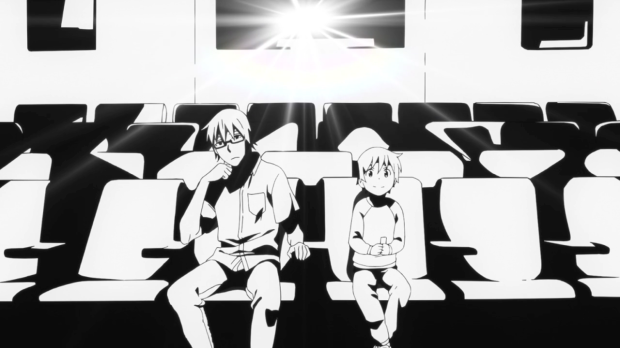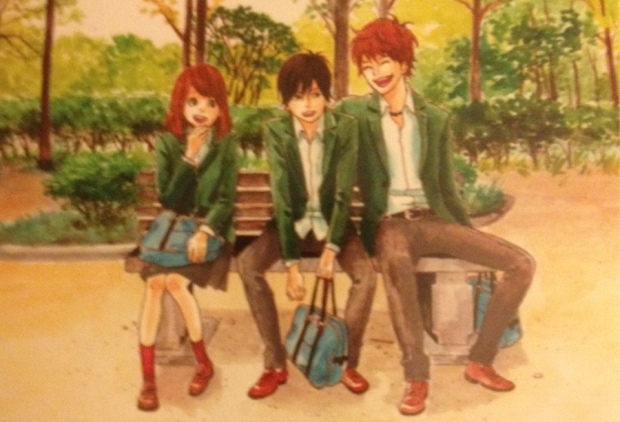The first day of my college orientation, we were instructed to write letters to ourselves four years from then, presumably when we would be days away from graduating. Looking around my orientation group, most seemed to struggle with what to say, gazing off into the middle distance or staring blankly at the small sheet of paper provided.
Unlike my peers, I began scribbling furiously.
I won’t recount the entire letter here, but most of it was painfully common — the kind of letter one would expect at that exact time, especially from someone who had struggled with anxiety and social pressures throughout high school. Don’t hide. Don’t withdraw from people. This is your chance to be outgoing and fun. The list of potential improvements to my dreary, shy self went on at length. None of them are particularly pressing concerns and all of them are simple, albeit relatable for most.
When we’re first introduced to Satoru Fujinuma in Boku Dake ga Inai Machi, he is a 29 year-old apathetic child, presumably scarred from his inability to do anything when his friend, Yuuki, is accused of murdering three children. Burdened with the knowledge that he couldn’t do anything to help his friend or Kayo Hinazuki, one of his classmates who was murdered, Satoru withdraws from the world until his mother is unexpectedly killed and he is framed for her murder. This sparks a time travel ability where he returns to his childhood body with his 29 year-old mind.
Bokumachi is a murder mystery/thriller – more of the latter since the mystery isn’t particularly difficult for the viewer to solve – and also a a tale of childhood and adolescence.
Others have written about the anime series’ many shortcomings as a thriller, but what I want to focus on is the time travel mechanic in relation to characters’ emotional narrative. While Bokumachi fails spectacularly in creating believable or interesting suspense, it succeeds when it focuses on lead Satoru and his growing maturity. As an audience, we are far more likely to relate to the feeling of wanting to change something in our past rather than solving a murder. The best parts of the series are small moments between Satoru and his childhood friends, as he actually lives through his childhood again where he had presumably checked out the first time around. These small moments pique interest and travels down our own personal memories as to what we would have done differently growing up with the knowledge that we have now as adults.
This emotional resonance with a reader, viewer, or – in the case of Life in Strange, which I previously compared with Bokumachi – player of a game with time travel present is crucial.
Without spoiling too much, the manga Orange covers a similar time travel narrative as Bokumachi, but does so through a letter from Naho Takamiya’s future self. In Naho’s future, one of her friends, Kakeru Naruse, passed away when she was still in high school. She writes herself a letter to see if her former self can save Kakeru from his early death.
Solving the mysteries behind Kakeru’s death is similarly serious to the murder mystery that Satoru is tasked with solving when he travels back to 1988. The difference is that the puzzle pieces uncovered by Naho and her group of friends in Orange remain deeply personal to them. Mystery, longing to right a presumed wrong, and changing the future are all interwoven in an affecting tapestry where Bokumachi‘s story elements of growth and maturity didn’t integrate nearly as well with any of the series’ murder mystery plot. I cheered for Satoru and Kayo as they grew closer to each other, but tended to tune the series out when the thriller plot took center stage. In contrast, Orange hooked me from the start, placing the regret around losing Kakeru side by side with Naho’s own burgeoning maturity and growth.
When I read my own “letter to the future” again, it was prior to my class’ graduation. In that moment, we were all mourning the accidental death of a friend that same week. Everything in it seemed trite and meaningless, yet I had very few regrets from my college years. I just gracelessly lived through them without instruction.



One comment